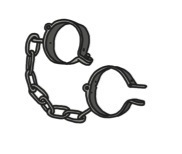To be free or not to be free – is that the question?
 I JUST SAW the latest effort at converting Tolstoy’s great classic novel Anna Karenina into a movie. I’m not a great Keira Knightley fan (or Keira Nighty as they call her on Capital Radio) but she did a decent job as Anna, I thought. The film was a bit bizarre – any expectations of a visual feast of 19th century Imperial Russia are dashed by the fact that the film is set almost entirely inside a theatre – with the odd moment of escape.
I JUST SAW the latest effort at converting Tolstoy’s great classic novel Anna Karenina into a movie. I’m not a great Keira Knightley fan (or Keira Nighty as they call her on Capital Radio) but she did a decent job as Anna, I thought. The film was a bit bizarre – any expectations of a visual feast of 19th century Imperial Russia are dashed by the fact that the film is set almost entirely inside a theatre – with the odd moment of escape.
It’s a powerful adaptation, though, thanks to the great script by Tom Stoppard which makes the most of the many themes in the book from the grotesquely unequal position of women in Imperial Russia (their extra-marital affairs are against the law, while men are expected to have affairs) to the enigmatic personality of Karenin – played almost is if he were a saint - by Jude Law.
But what struck me most was something I had missed in the book. It came back to me today after speaking at a lovely school in a deprived area of beautiful Pembrokeshire, in Wales. The question is this; Is slavery always worse than freedom? Or is the free world – something we generally take for granted as being a good thing – sometimes more cruel and damaging than having that freedom forcibly taken away?
Tolstoy poses the question towards the end his story when Levin, the idealist farmer, is talking on a hay bale to his chief worker who bemoans having to earn a living. Emancipation wasn’t something he or his family had asked for, he explained – rather it was imposed on them by liberals like Levin. The worker’s father never had to worry about finding a job, earning enough money or putting food on the table. All that came as part of the relationship between serf and master – it was not a free life, but at least there was no such thing as unemployment!
The teacher I spoke to today told me – and she is right I am sure – that many people in this part of South Wales have not had jobs for a generation or more – since the collieries disappeared. This has led to such a cycle of poverty that the parents of many of the children in the school do not get up in the morning before their children – I guess they have no need to, they have no job to go to – and in the process they have lost any sense of what it means to be valued by society.
This has led to such a cycle of poverty that the parents of many of the children in the school do not get up in the morning before their children
It is therefore up to the school to provide the children with breakfast, and to make sure their teeth get brushed in the morning.
I guess it is inevitable that the tragedy of longterm unemployment can only really be felt in a community that has lived with it for years – I don’t think for a minute that politicians or Prime Ministers in Westminster can genuinely empathise with what it must be like. Nor do they truly realise the appalling consequences that play out over time and that the real victims are the innocent young children – whose parents have little or no aspirations – not for themselves or their offspring.
So I just wonder. Perhaps Levin’s chief worker is right. Maybe some kind of forced employment – rather than blanket state handouts – would be better than the freedom to do nothing.
At least it would give the parents of those kids I spoke to today a need to get up in the morning before their offspring go to school. If these wonderful kids – still young enough to have natural, curious, supple, eager minds – grow up thinking that it is adult not to get up in the morning, then what hope is there for them – or their children – ad infinitum into the future?



